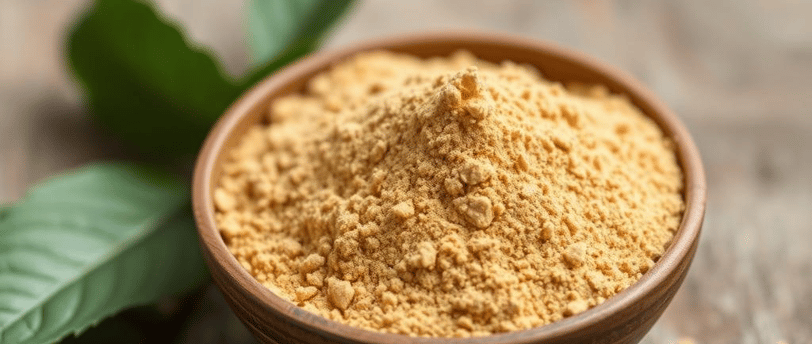Ashwagandha for Heart Health: The Adaptogen That Reduces Stress and Supports Cardiovascular Function
❤️HEART HEALTH


In the realm of herbal supplements, few have garnered as much attention as ashwagandha (Withania somnifera), a time-honored adaptogen deeply embedded in the Ayurvedic tradition. This powerful herb has emerged as a significant player in promoting overall health, particularly in relation to cardiovascular function. With rising awareness surrounding lifestyle-induced stress and its impact on heart health, ashwagandha's role as a natural stress reliever and cardiovascular support agent deserves closer examination.
Understanding Ashwagandha and Its Forms
Ashwagandha is classified as an adaptogen, meaning it helps the body adapt to stress and promotes physiological balance. The herb is available in various forms, catering to different preferences and lifestyles. Common forms include powder, capsules, tinctures, and teas, making it accessible for a wide range of users. The powdered form can easily be mixed into smoothies, oatmeal, or herbal teas, while capsules offer convenience for those on the go. Tinctures provide a concentrated dose that can be taken sublingually. Understanding the forms available can help individuals select the best method of consumption for their needs.
The Science Behind Ashwagandha
The scientific basis for ashwagandha’s health benefits lies in its rich array of bioactive compounds, including alkaloids, steroidal lactones (withanolides), and saponins. Studies have revealed that these compounds exert powerful anti-inflammatory and antioxidant effects, both of which play a crucial role in cardiovascular health. The plant has been shown to lower cortisol levels, the body’s primary stress hormone, which directly contributes to heart disease when chronically elevated.
Recent research indicates that ashwagandha may help reduce the risk of developing cardiovascular conditions by improving lipid profiles. By lowering levels of total cholesterol and triglycerides while promoting the presence of beneficial HDL cholesterol, ashwagandha supports healthy cardiovascular function.
Ashwagandha and Stress Reduction
Stress has a profound impact on heart health and can lead to anxiety, hypertension, and other cardiovascular issues. Ashwagandha's adaptogenic properties enable it to modulate the body's stress response, helping to lower anxiety levels and promote relaxation. Several clinical trials have documented significant reductions in cortisol levels among participants taking ashwagandha, suggesting a clear link between the herb and stress management.
A systematic review and meta-analysis published in the Journal of Clinical Psychiatry showed that ashwagandha reduced stress and anxiety levels significantly compared to placebos. This stress-relieving quality not only alleviates immediate discomfort but also forms a protective barrier against long-term cardiovascular complications.
Recipes Incorporating Ashwagandha
To maximize the benefits of ashwagandha, consider integrating it into your daily routine through simple recipes. Here are a few ideas:
1. Ashwagandha Golden Milk
This warm, comforting drink combines ashwagandha with turmeric, ginger, and milk (or a plant-based alternative) to create a potent anti-inflammatory beverage.
Ingredients:
1 cup milk (or almond milk)
1 tsp ashwagandha powder
½ tsp turmeric powder
½ tsp ginger powder (or fresh ginger)
1 tsp honey (optional)
Instructions:
Heat the milk in a saucepan until warm (do not boil).
Whisk in ashwagandha, turmeric, ginger, and honey.
Pour into a mug and enjoy before bedtime.
2. Ashwagandha Smoothie
Start your day with an energizing smoothie packed with nutrients.
Ingredients:
1 banana
1 cup spinach
1 cup almond milk
1 tsp ashwagandha powder
1 tbsp almond butter
Ice cubes (optional)
Instructions:
Blend all ingredients in a blender until smooth.
Adjust consistency with almond milk if necessary and serve immediately.
Dosage Recommendations
When it comes to dosage, it's crucial to follow guidelines to maximize benefits while minimizing possible side effects. Most research studies suggest a typical dosage ranging from 300 to 500 mg of ashwagandha extract taken once or twice daily. It’s always wise to start at the lower end of the dosage spectrum to see how your body reacts before gradually increasing the dose.
Consulting with a healthcare provider is particularly important, especially for those with pre-existing health conditions or those taking other medications.
Side Effects and Precautions
While ashwagandha is generally considered safe for most people, some may experience side effects, particularly at high doses. Possible side effects include gastrointestinal distress, headache, and diarrhea. It’s advisable for pregnant or breastfeeding women, individuals with autoimmune diseases, or those on specific medications (especially sedatives or thyroid medications) to consult a healthcare professional before incorporating ashwagandha into their routine.
People with thyroid conditions should also be cautious, as ashwagandha may potentially increase thyroid hormone levels.
Conclusion
In summary, ashwagandha is more than just a traditional remedy; it's a scientifically-backed adaptogen that holds promise for enhancing heart health by reducing stress and improving overall cardiovascular function. With various forms available, you can seamlessly incorporate this herb into your daily routine through enticing recipes or convenient supplements.
However, it's essential to respect individual health needs and consult with a healthcare professional to ensure safe and effective use. As the global population continues to grapple with stress-related health issues, ashwagandha stands out as a beacon of hope, showing that nature may hold some of the answers for our modern health challenges.
